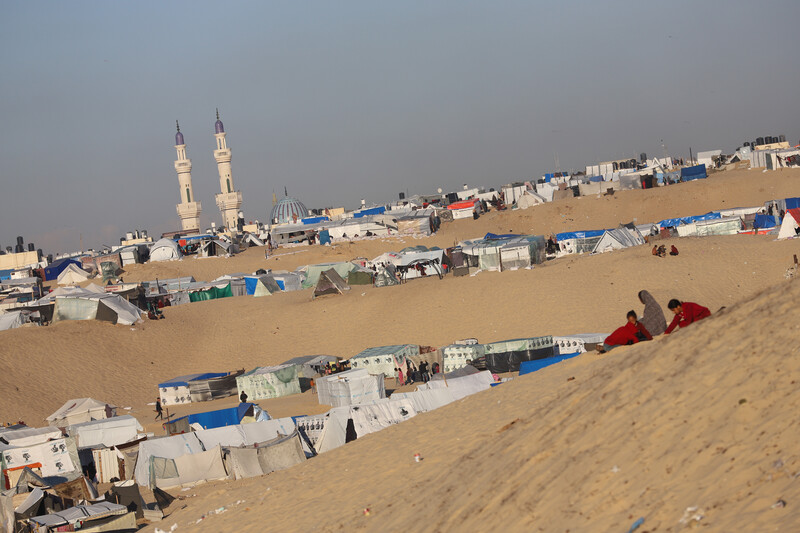The Electronic Intifada 22 April 2024

A camp for displaced Palestinians in Rafah, in the southern Gaza Strip, where 1.5 million people have been forcibly displaced by Israeli strikes, 27 March 2024. (Ahmed Tawfeq / APA Images)
Our new camp in Rafah, after our third displacement, is located in a graveyard near the Egyptian border. Each day the tents of new arrivals – of those forcibly displaced by Israeli attacks – creep closer to the graves.
After every Israeli massacre, both graveyard and camp expand, crawling toward the outer edges of the desert.
We’ve been here since December 2023. Nine of us share a tent that is 16 square meters.
We are in the desert, but sometimes it does not feel that way because of the density and the near-constant sounds of Israeli explosions and drones.
There are so many people in the camp, all of us in tents that do not protect from heat or cold.
Winds sometimes uproot tents. There are stray dogs everywhere. Every day we line up for drinking water. Sometimes the water runs out and we return to our tents empty-handed.
My family’s tent is in the middle of the camp. Next door is a medical point that supports those who have been displaced here.
I’ve seen doctors stitch up children’s wounds with care. Often there is no local anesthesia, so the doctors compensate with extra warmth and smiles. An elderly woman came to the tent for treatment for a chronic condition. They treated her with kindness. They did not have much medicine for her.
Since medical supplies are scarce, the doctors use what they have on hand.
We are being annihilated. We are running out of options. The north and south are separated, and communication is cut off. I used to hope that I would see friends and family in the north again, but now I just don’t know.
After this war ends, where will we go? Israel has destroyed our homes, and our favorite places no longer exist.
Lubna Ahmad Abu Sitta is a teacher and content writer from Gaza.




